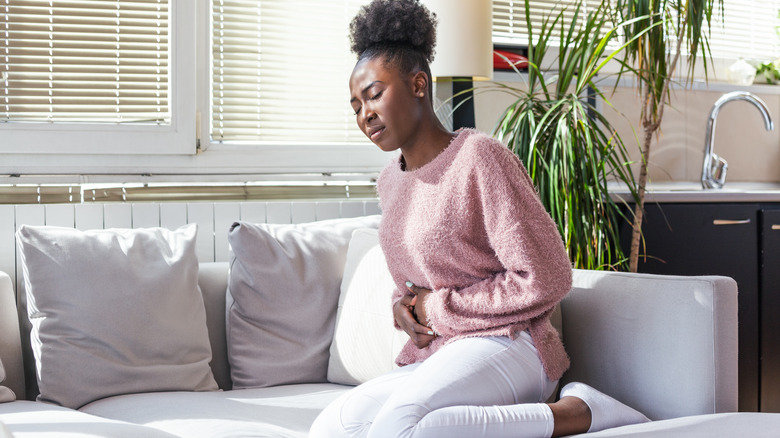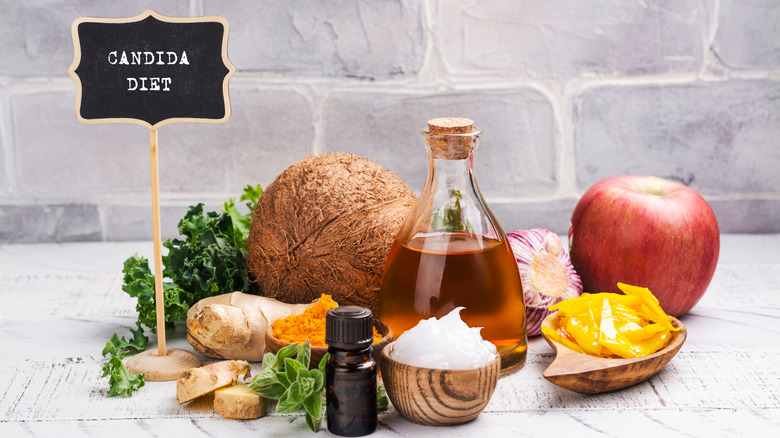What You Shouldn't Eat If You Have A Yeast Infection
Yeast infections are like an unpleasant houseguest. They show up unannounced and sometimes you're not sure how to get rid of them. Yep, that's the one. All of our body systems are interconnected, so what we eat has a profound effect on us. As women, personal matters like vaginal infections are not openly discussed very often. All timidity aside, in case you ever encounter this, we'll share some dietary tips to help treat and possibly prevent such nuisances.
A yeast infection is not a STD, though it can be transmitted through intercourse. WebMD says over 75% of women will experience a yeast infection at least once in their lives. Medical News Today notes that this bacterial imbalance is commonly caused by Candida albicans. Candida is a natural bacteria present in the vagina, mouth, and gut (via Medical News Today). It assists digestion when balanced with other healthy bacteria like Lactobacillus, a key culture in probiotics. If the bacteria overgrows, the telltale symptoms arise — itching, pain while urinating, and noticeably thick discharge.
According to the CDC, those most prone to having a yeast infection are pregnant women, those using contraceptives, women with diabetes, anyone with a weak immune system, and those taking antibiotics.
The Candida diet can alleviate infection symptoms
Quick note for the curious-minded: Candida is not to be confused with the yeast in bread (via Doctor Fungus). Mindbodygreen Health describes the Candida "diet" as one restricting inflammatory items such as dairy, sweet snacks, added sugars, starchy veggies like potatoes or corn, and highly-processed carbs like pasta, white bread and white rice. Everyday Health also recommends omitting things like gluten and yeasty, fermented drinks such as alcohol. Rather, the guidelines recommend eating low-glycemic fruits, healthy fats, animal protein, and gluten-free whole grains. "Foods that are okay on the Candida diet are green vegetables, meat, fish, eggs, salad, almonds, walnuts, herbal tea, green juice, and unsweetened coconut water," writes Health Magazine.
Medical News Today says, "The diet focuses instead on eating lean proteins, healthful fats, nonstarchy vegetables, and probiotics. The aim of these foods is to help minimize inflammation and balance the concentrations of bacteria inside the gut." It is to be followed as a doctor prescribes, or until symptoms fade.
Since this infection and its cure haven't been thoroughly researched, health professionals have opposing opinions about an official diagnosis and testing methods. Jazmine Polk from Health Magazine recorded her journey using the Candida diet to cure a yeast infection. Overall, her results were successful. Removing starchy, processed and fried foods from her diet healed her after one month.
Yeast infections are caused by bacterial imbalances in the body. Although women are likely to have at least one in their lifetime, the symptoms can be treated by eating non-starchy, natural foods and reducing the intake of dairy until symptoms subside. If you have frequent vaginal infections or other personal concerns, please consult with a gynecologist for further testing.


